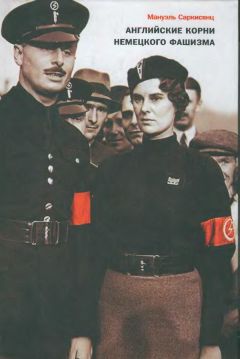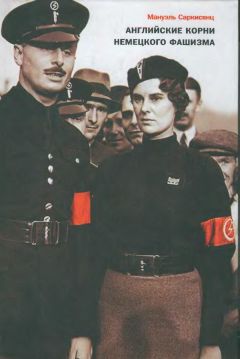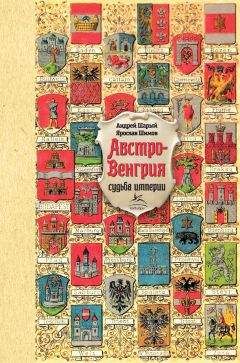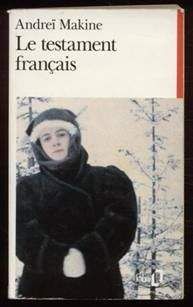1547
Seymour Lipset, «Fascism as extremism of the Center», in: Gilbert Allardyce (Editor), The place of Fascism in European history (Englewood Cliff, New Jersey, USA, 1971), p. 113.
Cf. Gisela Lebzelter, Political Antisemitism in England 1918–1939, p. 174.
Charles Dilke, Greater Britain (London, 1869), pp. 223, 564.
Gerwin Strobl, The Germanic Isle. The Nazi perception of Britain (Cambridge, 2000), pp. 90ff: Hitler's Table Talk of 22. August, 1942.
Hermann Rauschning, Gesprache mit Hitler (Zurich, 1940), S. 116f; Раушнинг. С. 102.
Reichskolonialamt, Die Behandlung der eingeborenen Bevolkerung in den Kolonialbesitzungen Deutschlands und Englands (Berlin, 1919), S. 73ff, 82.
Rede des Reichskommissar Erich Koch auf ersammlung der NSDAP in Kiew am 5. Marz 1943: Ernst Klee & Willi Dressen (Hrsg.), «Gott mit uns», Deutscher Vernichtungskrieg im Osten (Frankfurt, 1982), S. 218.
Понятие «concentration camps» первой применила британская сторона для собственных учреждений — этот факт использовала немецкая пропаганда времен войны (см., например, речь Гитлера от 30 января 1941 г.). В 1900–1901 гг. в таких лагерях англичане интернировали 117 тыс. бурских женщин и детей (чтобы принудить бурских партизан к капитуляции). Смертность в этих английских «бурских лагерях» составляла от 22 до 34 %. Эти лагеря описала англичанка Эмили Хобхауз ((1860–1926), англ. общ. деятельница; резко критиковала политику Англии в бурской войне и особенно отношение к женщинам в концлагерях, активно занималась помощью заключенным) (прим. автора).
Rudyard Kipling, Something of Myself (London, 1951), p. 162; Oskar Hintrager, Geschichte von Sudafrika (Munchen, 1952), S. 373f; zitiert Emily Hobhouse, The brunt of War (London, 1902); Robert MacDonald, Language of Empire, Mythos of popular Imperialism (Manchester, 1994), p. 39.
M. Domarus, Hitlers Reden und Proklamationen 1932–1945 (Munchen, 1965), Bd. II, Teil II, S. 1658; Rauschning, Gesprache mit Hitler, S. 117; Раушнинг. С. 102.
Hannah Arendt, Elemente und Ursprunge totaler Herrschaft (1955), S. 720; Schreiben des Rustungsinspektors-Ukraine, Generalleutnant Hans Leykauf, vom 2. Dezember 1941 an das Hauptwehrwirtschafts- und Rustungsamt im OKW sowie geheime Aufzeichnung vom 25. Oktober 1942 des Otto Brautigam vom Ostministerium: Klee & Dressen, Gott mit uns, S. 200, 202.
Heinrich Treitschke, Politik. Vorlesungen, S. 546, 573; Adolf Hitler, Mein Kampf (Munchen, 1933), S. 740, 741.
Carthill, erlorene Herrschaft (1924), S. 101, 115f, 85ff.
Richard Symonds, Oxford and Empire. The last lost Cause? (Oxford, 1991), p. 3.
Alain Cairn, Prelude to Imperialism. British reactions to Central African society 1840–1890 (London, 1965), p. 238; MacDonald, Language of Empire, p. 153f; Rutherford, Forever England (London, 1997), p. 15.
Alain Cairn, pp. 35, 93, 237; K. Tidrick, Empire and the English Character, p. 7;
Spectator, 15. October, 1864, p. 1179, quoted in Ch. Bolt, Victorian Attitudes to Race, p. 216.
R. Symonds, Oxford and Empire, p. 226.
Lord Olivier, The Myth of Governor Eyre (London, 1933), I, p. 115; Peter Marsh, The Conscience of the Victorian State (Syracuse, 1979), pp. 96, 126.
R. Symonds, Oxford and the Empire, pp. 214, 217, 218.
W E. F. Ward, Fraser of Trinity and Achimata (Accra, 1965), p. 146 cited by Symonds.
Welldon, Youth and Duty. Sermons (1907), pp. 155f, 160.
Wilhelm Dibelius, England II, S. 210; Matthew Arnold, Culture and Anarchy (New Haven, 1994), p. 157.
Correlli Barnett, The Collapse of British Power (1977), p. 33.
К. Tidrick, Empire and the English Character (London, 1992), p. 216.
John Rogers, Old Public Schools of England (London, 1938), p. 2.
Thomas Hughes, Tom Brown's School Days (Oxford, 1989), p. 142, 228f.
Ibid., p. 195.
Т. C. Worsley, Barbarians and Philistines (London, 1940), p. 202; K. Tidrick, Empire and the English Character, p. 99.
Mangan, Games'ethics and Imperialism (as reference 108), p. 195.
Stead, Last Will… of Cecil Rhodes, pp. 100, 101, 114, 39 (t); Simon Heffer, Moral Desperado. A Life of Thomas Carlyle (London, 1995), p. 236.
E W. Hammond, Liberalism and Empire (London, 1900), p. 156f; John Morley, Life of… Cobden (as reference 712), p. 97; Wingfield-Stratford, History of English Patriotism, Vol. II (London, 1913), p. 585.
Янгхасбенд Фрэнсис Эдвард (1863–1942) — англ. путешественник, исследовал Центральную Азию и Тибет, в 1906–1909 гг. — британский резидент в Кашмире.
Francis Younghusband, The Heart of Asia (London, 1896), p. 396f in: Robert Huttenback, Racism and Empire (1976), p. 15.
Твой жребий — Бремя Белых!…
Править тупой толпою
То дьяволов, то детей…
(Бремя Белых / Пер. В. Топорова //
Киплинг Р. Бремя Белых. М, 1995. С. 43).
Rudyard Kipling, Verses (London, 1940), p. 256.
Твой жребий — Бремя Белых! Награда же из Наград —
Презренье родной державы И злоба пасомых стад.
Ты (о, на каком ветрище!) Светоч зажжешь Ума,
Чтоб выслушать: «Нам милее Египетская тьма!»
(Там же).
Ibid., p. 324.
B. Parry, Delusions and discoveries… India in the British imagination 1880–1930 (London, 1972), p. 51; vgl. Somervell, Geistige Stromungen in England im neunzehnten Jahrhundert (Bern, 1946), S. 283.
О, Запад есть Запад, Восток есть Восток, и с мест они не сойдут,
Пока не предстанет Небо с Землей на Страшный Господень суд.
Но нет Востока, и Запада нет, что племя, родина, род,
Если сильный с сильным лицом к лицу у края земли встает?
(Баллада о Востоке и Западе / Пер. Е. Полонской //
Киплинг Р. Бремя Белых. М., 1995. С. 32).
Rudyard Kipling, Complete Verses (London, 1990), p. 190, 193.
Положение (букв, дворянство) обязывает (фр.).
Принадлежность к буржуазии не обязывает (фр.)
Ср.: Письма из Avenue Marigny (письмо четвертое) // Герцен А. И. Собр. соч.: В 30 т. Т. 5. М., 1955. С. 240.
Ruppert Wilkinson, The Prefects: British leadership and the Public School tradition (London, 1964), p. 100–109; Hannah Arendt, Elemente und Ursprunge totaler Herrschaft (1955), S. 339.
Паркин Джордж Роберт (1846–1922) — англ. педагог и публицист, уроженец Канады; член Лиги имперской федерации; поклонник С. Родса, распорядитель стипендий его имени.
Terry Cook, «George R. Parkin and the concept of Britannic idealism»: Journal of Canadian Studies, Vol. X, Nr. 3 (1975), p. 22.
Ibid., p. 22, 26 (source references 71 und 100).
Marsh, Conscience of the Victorian State, p. 192; A. C. Hill, Christian Imperialism (London, 1917), pp. 10, 11.
Douglas Lorimer, Color, Class and the Victorians (New York, 1998), p. 205; Mac Donald, Language of Empire, p. 67; Correlli Barnett, the Collapse of British Power (London, 1997), p. 137.
Ruppert Wilkinson, The Prefects: British leadership and the Public School tradition (as reference 1079), S. 74; Stockwell, «Hugh Clifford's early career»: Journal of the Malaysian Branch of the Royal Asiatic Society, XLIX (1976), Part II, pp. 94f, ill.
Lord Alfred Milner, The Nation and the Empire… Collection of Speeches and Addresses (London, 1913), Introduction, Speech in Capetown on 20. April, 1900.
Rutherford, Forever England, p. 96; Adolf Hitler, Monologe im Fuhrerhauptquartier, S. 331: 6. August 1942.
Ernst Nolte, Die Krise des liberalen Systems und die faschistischen Bewegungen (Munchen, 1968), S. 206.
R. Baden-Powell, The Matabele Campaign (London, 1900), pp. 171f, quoted in: R. MacDonald, Language of Empire (Manchester, 1994), p. 39; D. Pryce-Jones, Unity Mitford. A Quest (London, 1976), p. 18; G. StrobI, The Germanic Isle, pp. 42, 169; Klaus Hildebrand, Das vergangene Reich. Deutsche Aussenpolitik von Bismarck bis Hitler 1871–1945 (Stuttgart, 1995), S. 112, 759.
G. R. Uberschar & Wette (Hrsg.), Unternehmen Barbarossa, Derdeutsche Uberfall auf die Sowjetumon (Paderborn, 1990), S. 192.
Generalfeldmarschall von Reichenau, Befehl vom 28. Oktober 1941: Klee & Dresen, «Gott mit uns S. 40.
Lord Alfred Milner, England in Egypt (London, 1892); Earl of Cromer, Das heutige Agypten (Berlin, 1908), Bd. II, S. 228, 504; Wurgaft, The Imperial Imagination. Magic and Myth in Kipling's India (1983), p. 162; Brian Simon, Studies in the History of Education 1780–1870 (London, 1969), p. 134 with reference to Parliamentary Debates (Hansard) Vol. IX, 798 (13. July, 1807); to Brimley Johnson, Letters of Hannah More (1925), p. 18 and to A. Bell, Experiment in Education (second edition, 1805), p. 62.
Lord Alfred Milner, England in Egypt (London, 1892); Earl of Cromer. Das heutige Agypten (Berlin, 1908), Band II, S. 228, 504; Hermann Schreiber, Land im Osten. Verheissung und Verhangnis der Deutschen, S. 355; Wer Krieg war im Dritten Reich (Arndt Verlag, Kiel, 1985), S. 46; Christopher Ailsby, SS: Roll of Infamy (London, 1997), p. 13.
Vgl. Christian Streit, Keine Kameraden. Die Wehrmacht und die sowjetischen Kriegsgefangenen (Stuttgart, 1978).
The Times (London) vom 21. Januar 1927 nach Richard Griffiths, Fellow-Travellers of the Right. British enthusiasts for Nazi Germany 1933–1939 (Oxford, 1983), S. 14; Spitzy, So haben wir das Reich verspielt (1986), S. 154.
Walter Struve, Elites against Democracy. Leadership ideals in bourgeois political thought in Germany 1890–1933 (Princeton, 1973), S. 453.
Джон Дэвидсон (1857–1909) — шотландский поэт; в своих «Завещаниях» воспевал «сверхчеловека».





